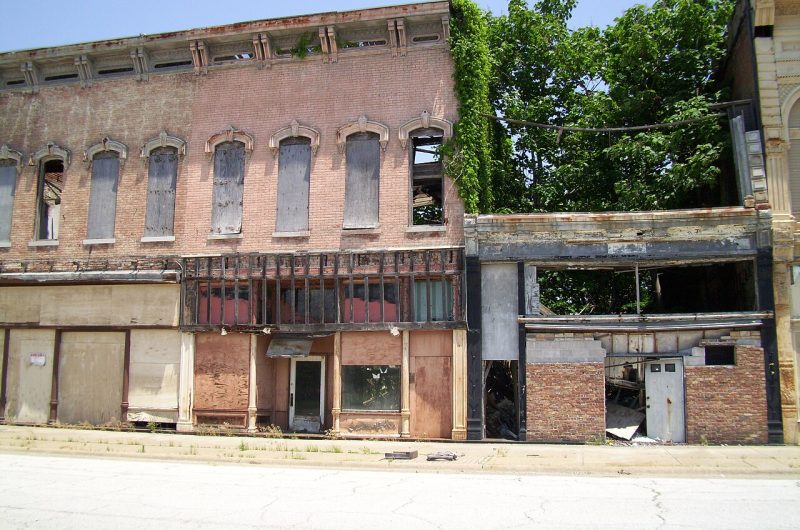Vajda: Community Resilience, Generational Transitions, and the Future of Charitable Endeavors in Marquette

In a mere 22 years, my community–the City of Marquette–will be 200 years old. Within the next 20 years, we will see the passing of the Baby Boom generation, and the Gen-Xers and Millennials will be responsible for finding a way to fill potholes, plowing the snow, and meeting expectations for our charities, our arts and culture, and community events–the essence of who we are.
It’s never been an easy task, and finding a way to provide for as many wishes as possible while still making ends meet is a goal worthy of Sisyphus! Whether a community, a family, or an individual, when choices need to be made, essentials always take first priority. Inevitably, this results in impacts to those activities that we need and enjoy, and challenges us to find ways to keep our community going strong.
My parents were raised during the Great Depression, and incorporated their experiences in the creed my brothers and I were expected to follow. They knew that life wasn’t fair; there are no guarantees–people always get what they want or need. Some get more, some get less, and no one deserves any less than what they give.
My folks believed that the only time you need to worry about what your neighbor has is to make sure that they have enough. It is because of this upbringing that my brothers and I started a charitable endowment in their honor with the Community Foundation of Marquette County.
My parents viewed giving as a three-legged stool. If you couldn’t give money, you could give time. If you couldn’t give time, you could provide compassion. If you spent all your time judging people, you had very little time left for compassion. So for my parents, that meant volunteering for City Boards and Commissions; charities and churches, schools and sports, and a wide variety of activities that needed chaperones, drivers, ticket-takers, communicators, etc.–whatever was required–No questions asked, just do what you could to help.
I see examples of it every day. The volunteer spirit of our neighbors, and the love of place of our residents. Most people know how to find a helping hand; ask for a favor; or pitch in to support somebody in need. Whether through personal acquaintances, or through community organizations, we are devoted to our charities, our civic engagements, and our religious activities.
Even so, society has changed, and expectations for charities and community events reflect different preferences. Today’s stories capture the zeitgeist an accelerating crisis of faith in our institutions–Government, Religion, and Education. I sometimes wonder if the Internet–a medium that can capture any and all parts of our daily life and save them for posterity, has influenced our charitable focus to favor mundanity over ephemeral moments–i.e., maybe we need a few more community dinners, rather than selfies of our dinner!
I think many influences may be placing some of our beloved community activities at significant risk, and it’s time to think about how we secure this part of our future. The questions we need to consider are the same as those my parents considered–i.e., can we give of our money, time, or compassion?
Money is always a challenge, and in the current economic climate, even more so. Per the U.S. Bureau of Labor Statistics, US Core CPI–a standard measure of Inflation–has almost doubled, from around 2.2% in 2020 to approximately 4.2% as of November 2023.
Correspondingly, prices have grown by 19 percent overall since 2020, with energy prices the most volatile. Unfortunately, energy costs are reflected in the prices of anything that needs to be moved–i.e., shipping and logistical–which in an area like the U.P. leads to even higher price growth, since we import largely everything we use on a daily basis. Otherwise stated, the same basket of goods we could buy for $100 in 2020 now costs $119+ in 2023; taking away money that could be spent on charity!
Over the same time frame, the Federal Reserve and Treasury have taken steps to manage inflation, with goals such as driving down inflation on food and fuel–which has resulted in a shift of inflation towards services–i.e., rents, shelter, and other services. This has led to an almost 200% increase in prices in those service areas.
If you are in the market for a new house, you can see this reflected in mortgage rates. If you are looking for an apartment to rent, you will see this reflected in monthly rents. Wage growth has not kept pace with price increases or inflation, leading to very difficult choices with food and shelter, and a tightening of most individual and family budgets and spending. In a place like Marquette, per the U.S. Census American Community Survey, many people live below the poverty level, making the daily struggle for food and shelter even harder.
Predictably, when faced with tough choices about how to make ends meet, one of the first things to go is charitable giving. According to PNC Bank, Total Charitable Giving was 1.9% of GDP in 2022, down from a 40-year high in 2020 of 2.3%. Sources of funds are also down. Inflation reached 9.1% in 2022, causing all four sources of funds—Corporations, Bequests, Foundations, and Individuals—to decline. In the Marquette Area, a quick review of the Community Foundation of Marquette County Annual Report shows that giving was largely flat – a better than expected result in a tough economic climate.
We should also consider mandatory expenses–i.e. tax increases that the City, State, and Federal government have imposed within the last four years that further reduce funding available for daily expenses as well as charity. It’s not hard to imagine that in this environment, any increase in costs, whether by government or the economy, are unwelcome, and that there is less incentive to donate to charity when it’s unclear whether people will be able to manage their own needs.
So if donating money is not an option, what can we give of our time? Interestingly, this is an area that is specifically tracked by the U.S. Bureau of Labor Statistics: American Time Use Survey, Average hours per day spent in selected activities by sex and day. For the latest published year of the survey, the average American spends only .26 hours per day–approximately 15 minutes–on “organizational, civic, and religious activities.”
Men spend about 2 minutes less, women, about 2 minutes more. Another way to think about this is we all on average spend about one and a half hours per week on something other than eating, sleeping, cleaning, and working; we spend about one and a half hours per week on our charities/civic efforts, and about 36 hour a week on other recreational activities. If we are active in our religious faith, once weekly attendance could easily account for ALL our charitable time!
It’s reasonable to consider how we are spending our time today, and what the current trend suggests for the future. As an example, according to the IRS, there are 402 Charitable Organizations in Marquette with active tax exemptions on file. There are approximately 20 Boards and Commissions in the City of Marquette. All of these organizations have active programs that serve some or all the constituents in our community.
I took the time to chat with a few groups in the Marquette area to get a first-hand perspective on community volunteerism and support. I believe it’s safe to surmise that the future of many community events are threatened by a declining ability or willingness of volunteers to donate time and energy. Many comments I received were that organizations are experiencing a volunteer shortage as well as a heavier reliance on “vintage volunteers”–i.e., older people, or long-time volunteers who are looking to pass the torch to younger personnel.
Many described volunteers as “the lifeblood” of community organizations and said they need help encouraging more people under 40 to give their time. I wasn’t able to find a good set of data or analysis that profiled the current volunteer base–i.e., what percentage of volunteers are under 30 years old, what percentage are over 50, etc.–so I can only share anecdotal views. The interviews left me with a stark feeling that there is a significant lack of under-40 volunteers, which if true and unmitigated, suggests a worrying trend for the future, and could lead to existential crisis for some of the events that our community has come to love.
I suspect that Gen-Xers and Millennials love their community as much or more than their predecessors. As newer members of the community, they are starting their life’s journeys during tough economic times, and it’s not too hard to imagine that their charitable abilities reflect that. It’s tough to give of time and money when prices are skyrocketing, and people need to hold multiple jobs just to make ends meet. I do not believe it’s because younger people are any less magnanimous than generations that came before.
They behave with the same three-legged view my parents observed. I was fortunate, because many of my parent’s friends held these same beliefs and they expected their children–my friends–to believe the same. I know from speaking to many younger people that they are seeking opportunities to invest in the future of their communities, and they will make the same choices my friends and I have. If you can’t give money, give time; and if you can’t give time, give compassion.
We are living in challenging times. Tastes are changing, and our charities, arts and culture, and community events would be well advised to change with the times. It might be a while before the baby boomers who have carried the torch for some of the things we enjoy can hand it off to the new team.
If the current people can’t keep an event going, we might need to sunset a few to keep the rest going–or acknowledge that something we enjoy has had a good run, but it’s time to move on. Transitions are hard, and it would be a shame to see a community event end, but our residents are resilient when they are tested by hard times, and hopefully we will find the compassion to recruit a strong team to carry us forward.






Thanks for presenting the challenge so clearly. Leaves me wondering how we are assessing what is important to the next generation and whether current structures make it easy for new people to participate. Challenges I’ve heard about include inefficient communication methods, meeting times and places that create childcare challenges, hard to change resource allocation to meet needs of historical services and new opportunities.
So, how do historical donors, communicate a priority for revisions that meet future needs? Seems like a good gift to members of younger generations that we love and a community that we want to be viable in the future.
Fantastic piece on the continuing need for civic engagement for the success of all communities.